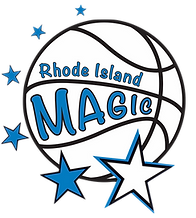PROGRAM INFORMATION
RI Magic Parent/Guardian Code of Conduct
The Rhode Island Magic strongly believes that basketball helps teach life lessons. Our goal is to instill lifelong positive character-building traits in our players through the demonstration of good sportsmanship, respect for themselves and others, and accepting responsibility for their actions. In order to support the program’s philosophy and to assist the coaches with teaching these lessons, it is imperative we have parental support. The following are the expectations for parents/guardians of all players in our program. Although many, if not all, may seem like common sense, they have all occurred recently within our program.
I support my child’s commitment as a member of the Rhode Island Magic and will:
-
Make sure my child arrives at games and practices on time. This means arriving 5-10 minutes early to practice and no later than 30 minutes early to a game, as AAU games can often start early. It also reinforces an extremely important life skill- being on time.
-
Not communicate with my child during practices and games and allow the coaches to coach. While this is not easy, providing potentially conflicting messages during a game confuses the player, often is contrary to what the coach wants, and will contribute negatively to his ability to focus. We all see the player who makes a mistake and immediately looks in the stands at a parent. This is not good for the player, and we are always working to get the player to focus and listen to the coach, not the parent. During practices and games, be their biggest fan, not their coach.
-
Provide encouragement and support for your child and for all players on the team. Never yell negative comments at any player on the team, including your child, as well as coaches and referees. Players of all ages like positive reinforcement and comments. Those are strongly encouraged. Negative comments do not help your child play better and making negative comments at other players on the team causes tension among players and parents. There is a zero-tolerance policy for this behavior. Finally, yelling at the referees does not improve the situation and instead of helping the team, often hurts it instead.
-
Respect the opposing team, coaches, and fans. Unfortunately, there are times when opposing players, coaches and fans will not act appropriately. This is an excellent time to model appropriate behavior for your child and the team on how to respond to a negative situation. Yelling back and forth to other parents can escalate a situation and shows players that is how you solve problems. In cases where other fans are acting inappropriately, the site director should be notified so they can quickly handle the situation in an appropriate manner.
-
Understand that winning is important to the players and the team, but our primary objective is that they have fun and develop as basketball players and young men and women. They will win and lose games and they will definitely make a lot of mistakes. One of the most important lessons that they will learn is to accept responsibility, especially after losses.
-
Help your child embrace their role, no matter what it is. To be honest, oftentimes most parents do not agree with the role of their child on the team, for a variety of reasons. It is important that you help your child accept and embrace their role for the best possible experience.
-
Support the coach. While many parents do not agree with the coach at times, contradicting the coach’s message is extremely counterproductive. Do not criticize the coach, publicly or privately, or share with your child the things you think the coach is doing wrong. If there is a big problem, deal with it appropriately by going directly to the coach at an
agreed-upon time or reaching out to the director with your concerns. -
Schedule a time with the coach to calmly and constructively discuss concerns rather than during, immediately before, or after a practice or game. The Rhode Island Magic utilizes a 24-hour “cooling off” period, which allows time to organize your thoughts and have a meaningful discussion with your child’s coach. This conversation should be in person and focus solely on your child. No reference should be made to another player.
-
Do everything within my control to make this a positive experience for my child, other players, families, and coaches. I will do my part to contribute to the Magic family!
After a practice or game, you should not force your child to talk about the game or tell them all of the things that you think they did wrong and what they need to do to be a better player. You will have many long car rides with your child to discuss practices and games. If they want to talk, we recommend starting with, “What did you see?”, “What did you do well?”, “What could you have done better?” Players are often very honest and reflective of what occurred and by being reflective and helping them identify what they did well and what they struggled with, it helps them improve. To learn more about how to embrace and interact with your child following their practices/game, check out our partner Dr. Heather Larkin at theallinpro.com
Finally, please understand that you are responsible for the behavior of anyone you bring to practices or games. Depending on the severity and frequency of any of the above infractions, it can lead to the removal of your child from the team and program. By reading these rules, you agree to adhere to them at all times. If you have any questions, please let the directors know.










